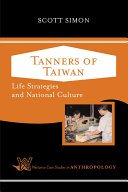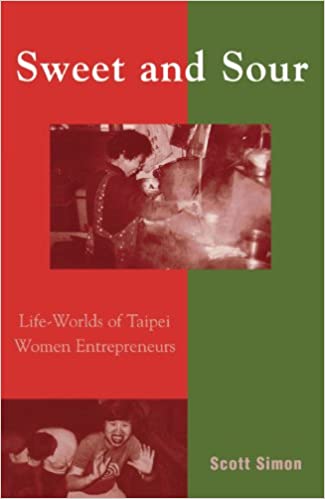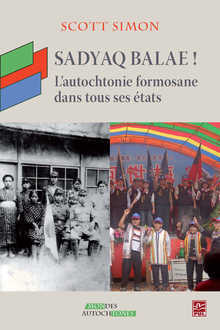A note from Talking Taiwan host Felicia Lin:
Earlier this year, I spoke with Professor Scott Simon about his research on Taiwan’s indigenous peoples. He is a Professor in the School of Sociological and Anthropological Studies and Co-holder of the Research Chair in Taiwan Studies at the University of Ottawa. He’s done research in Taiwan since 1996, spent an accumulated 10 years of residence in the country, and published 3 books about Taiwan. We talked about Taiwan as the cradle of Austronesian peoples and culture, and what the designation of a group of people as “indigenous” means from an international law perspective. What’s interesting to me is how Professor Simon’s work invites us to think of Taiwan as a Pacific island nation rather than a renegade province of China.
Here’s a little preview of what we talked about in this podcast episode:
- How Professor Simon got interested in the indigenous peoples of Taiwan
- How there were a lot of changes pertaining to the indigenous peoples of Taiwan around 1996
- The indigenous people that Professor Simon met while in Taiwan
- What brought Professor Simon to Taiwan initially in 1996
- How Professor Simon had initially planned to obtain his PhD in China but ended up doing it in Taiwan
- How Professor Simon’s research on Taiwan’s indigenous peoples and economic development led him to study the ecology and environment, and the study of Austronesian peoples
- The connection between the Bhatani Islands of the Philippines and Taiwan
- The similarity between the CHamoru language (of the people of Guam) with the Truku language of the Taiwanese indigenous people and Tao language spoken in Taiwan’s Orchid Island
- Looking at Taiwan as a Pacific island nation and not just as connected to China
- Taiwan’s connection to Guam, Marieta Islands, Carolina Islands, Maori of New Zealand and Easter Island
- Book recommendations for people wanting to learn more about Taiwan’s indigenous peoples
- The difference between categorizing a group of people as indigenous vs. an ethnic minority
- The three nations in Asia that recognize indigenous peoples
- The political implications that come with a group of people being declared indigenous
Related Links:
Professor Scott Simon’s author page on The Center for International Policy Studies of the University of Ottawa website: https://www.cips-cepi.ca/author/scott-simon/
Undoing Fieldwork in a Time of Epidemic by Scott Simon: https://cascacultureblog.wordpress.com/2020/04/20/undoing-fieldwork-in-a-time-of-epidemic/
Professor Scott Simon’s books:
Tanners of Taiwan: Life Strategies and National Culture: https://books.google.com/books/about/Tanners_of_Taiwan.html?id=ostwAAAAMAAJ
Sweet and Sour: Life-Worlds of Taipei Women Entrepreneurs: https://books.google.com/books/about/Sweet_and_Sour.html?id=gFyqAuPTAgkC
Sadyaq Balae ! L’autochtonie formosane dans tous ses états (Scott’s French language book about the indigenous peoples of Taiwan): https://www.pulaval.com/produit/sadyaq-balae-l-autochtonie-formosane-dans-tous-ses-etats
Book Recommendation:
The Aborigines of Taiwan: The Puyuma : from Headhunting to the Modern World by Josiane Cauquelin: https://books.google.com/books/about/The_Aborigines_of_Taiwan.html?id=v4ALmQEACAAJ



